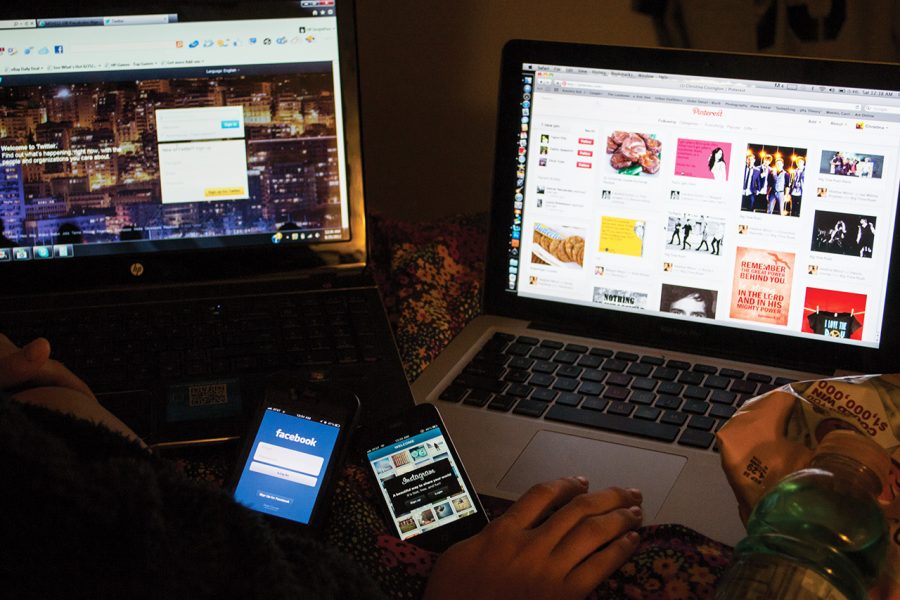Social media helps students develop interactive skills
September 6, 2012
Social media usage is now one of the most common practices among adolescents and individuals, according to a study published by the American Academy of Pediatrics.
According to the same study, social media is considered any website that allows for social interaction and networking.
The effects of social media usage have been studied by different researchers across the country, including a set of researchers in Massachusetts who examined the relationship between Facebook and the well-being of undergraduate students.
The study ultimately found that if used in moderation and responsibly, social media sites like Facebook can be positive and help students effectively connect with their peers.
Jennifer Smith, career development coordinator for career planning and development, said finding a balance between social media use and interpersonal interaction is key.
“A good balance of social media and face-to-face interaction won’t hinder the development of social skills too much,” Smith said. “The problem occurs when social media becomes the only way that students can contact people. It’s too much when it comes down to being almost scared just to call someone on the phone.”
The office of career planning and development can offer one-on-one appointments with students to help them develop social skills and gain confidence outside of the social media realm, Smith said.
“Not communicating on a daily basis can lead to forgetting how to have interpersonal skills,” Smith said. “We haven’t seen any extreme cases of people who have lost all contact with other people, but we are willing to meet with people individually to help them gain the confidence they need.”
Cynthia Burkhead, assistant professor of English, said that social media at least provides the student with some form of social interaction.
“I think college students are going to be behind their computer, no matter what,” Burkhead said. “At least Facebook is giving them a chance to interact with other people and not just a video game or some other computer activity that prevents socialization.”
Junior Amanda Frazier said she does not feel she partakes in social media usage more than the average college student, but that it has taken away from interpersonal communication in her own life.
“The creation of groups on Facebook and email takes away from actual communication with a group of people,” Frazier said. “It puts actually communicating with someone on the back burner. I completed a whole group project once through email and social media.”
Determining how social media can delay social skills is difficult, because each person is different, Smith said.
“There’s individualization for each student,” Smith said.


